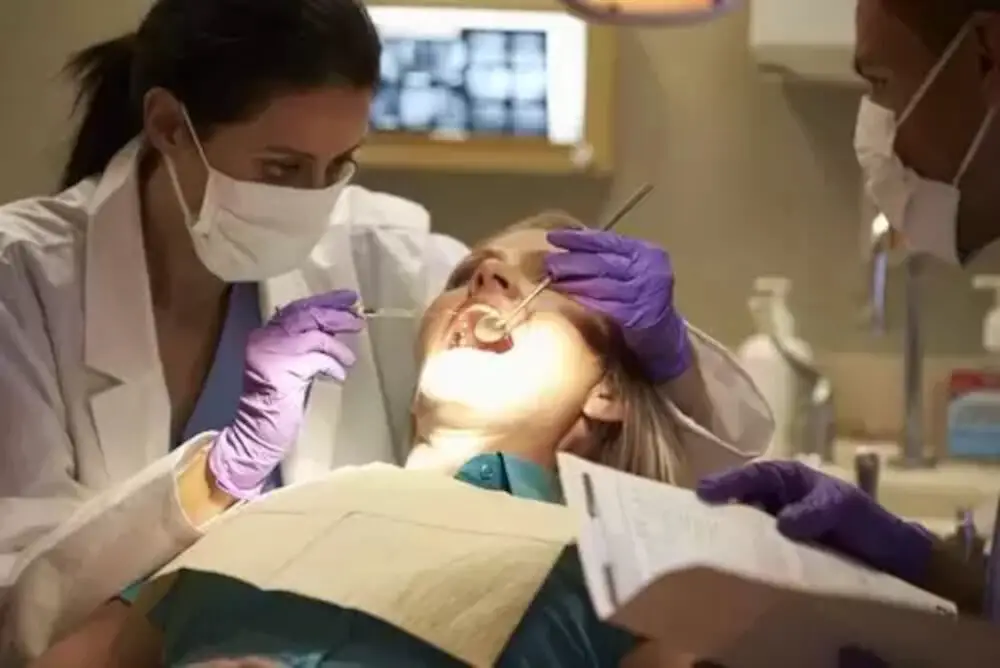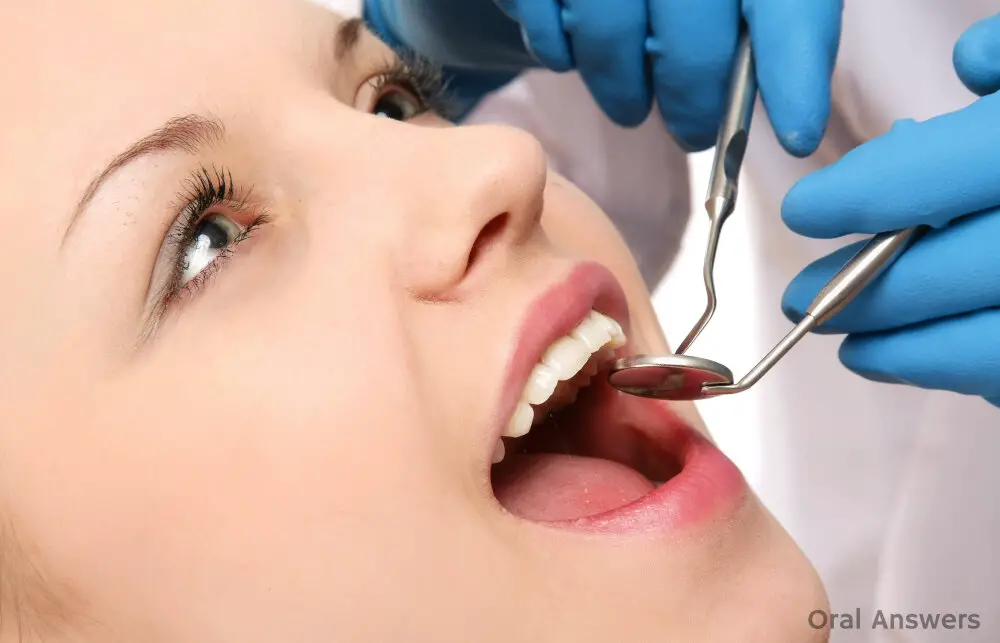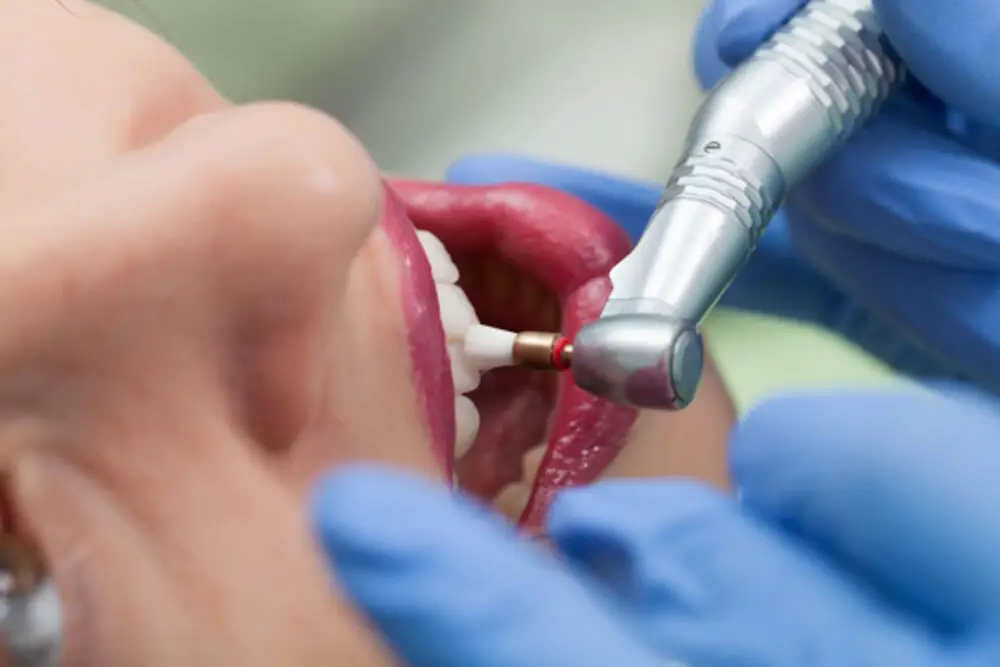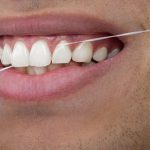Why Do My Teeth Tingle? Understanding the Causes and Treatment Options

Teeth tingling can be an uncomfortable and alarming sensation that many people experience at some point in their lives. It’s often described as a prickling or numbing feeling in the teeth that can occur suddenly or persistently. Understanding the causes of tooth tingling and the available treatment options is crucial to alleviate the discomfort and prevent further damage to your teeth. Tooth tingling can have numerous underlying causes, ranging from minor to severe. It can result from poor dental hygiene, such as the buildup of plaque, cavities, or gum disease. However, it can also stem from more severe conditions, including nerve damage, infections, or trauma to the teeth or gums. Regardless of the cause, tooth tingling should be taken seriously, as it can be an indicator of a more significant underlying issue that requires prompt attention.
Tooth tingling is a sensation that can be described as an electric or prickling feeling in the teeth. It is typically caused by nerve stimulation in the teeth, which can occur due to a variety of factors such as temperature changes, pressure, or even certain dental procedures. Tooth decay, gum disease, and teeth grinding can also lead to tooth tingling. It is important to identify the underlying cause of tooth tingling in order to determine the appropriate treatment. Treatment options may include addressing any dental issues, using desensitizing toothpaste, or in severe cases, undergoing a dental procedure such as a root canal.
Teeth tingling is a common dental concern that can be caused by various factors, including tooth decay, gum disease, enamel erosion, teeth grinding, and nerve damage. In some cases, certain foods and drinks, such as acidic beverages, can also trigger tooth tingling. Treatment options for teeth tingling largely depend on the underlying cause. For instance, if tooth decay is the culprit, a filling or crown may be necessary. On the other hand, if gum disease is the cause, a deep cleaning or gum surgery may be required. In some cases, desensitizing toothpaste or a mouthguard may be recommended to alleviate the symptoms of teeth grinding. It is crucial to seek dental care promptly if you experience teeth tingling, as early intervention can prevent more severe dental issues from developing.
Dental Issues

Dental issues are a common occurrence that affects people of all ages. One of the most common dental issues is tooth sensitivity, which is characterized by a tingling sensation in the teeth when exposed to hot or cold temperatures. This condition can be caused by various factors, including receding gums, enamel erosion, and tooth decay. If left untreated, tooth sensitivity can lead to more severe dental problems, such as cavities and gum disease. Therefore, it is essential to understand the causes of tooth sensitivity and seek treatment promptly. Another common dental issue is gum disease, which is caused by the buildup of plaque and bacteria on the teeth and gums. Gum disease can lead to various symptoms, including redness, swelling, and bleeding of the gums. If left untreated, gum disease can cause tooth loss and other serious health problems, such as heart disease and diabetes. Therefore, it is crucial to practice good oral hygiene habits, such as brushing and flossing regularly, to prevent gum disease from developing. In addition, regular dental checkups are necessary to detect and treat gum disease early on.
Tooth decay, also known as dental caries, is a common dental problem caused by the breakdown of tooth enamel, the outer layer of teeth. Bacteria in plaque produce acid that erodes enamel, leading to cavities. Poor oral hygiene, frequent snacking, and high sugar intake can increase the risk of tooth decay. Symptoms include tooth sensitivity, pain, and discoloration. Treatment options depend on the severity of the decay and may include fillings, crowns, or root canal therapy. Preventive measures such as regular dental check-ups, brushing twice a day, flossing, and limiting sugary foods and drinks can help reduce the risk of tooth decay.
Gum disease, also known as periodontal disease, is a common condition that affects the gums and the surrounding tissues of the teeth. It is caused by the buildup of plaque and bacteria on the teeth, which can lead to inflammation and infection. Gum disease can range from mild to severe and can cause symptoms such as redness, swelling, bleeding gums, and bad breath. If left untreated, gum disease can lead to tooth loss and other serious health problems. Treatment options for gum disease include professional cleaning, medication, and surgery in severe cases. Maintaining good oral hygiene practices, such as brushing and flossing regularly, can help prevent gum disease.
Bruxism, commonly known as teeth grinding, is a condition where an individual clenches or grinds their teeth unconsciously. It is a common dental problem that occurs due to stress, anxiety, or an abnormal bite. The condition can lead to various symptoms such as headaches, jaw pain, and tooth sensitivity. In severe cases, bruxism can cause damage to teeth, jaw joints, and lead to tooth loss. Treatment options include relaxation techniques, mouthguards, and medication. If left untreated, bruxism can cause significant damage to oral health, and it is essential to seek professional dental care to manage the condition effectively.
Cavities, also known as dental caries, are a common dental problem that occurs when bacteria in the mouth produce acid that erodes the tooth’s enamel, causing a hole in the tooth’s surface. Poor oral hygiene, a diet high in sugar and carbohydrates, and dry mouth can all contribute to the development of cavities. Symptoms of cavities include tooth sensitivity, pain when chewing, and visible holes in the teeth. Treatment options for cavities depend on the severity of the decay and can range from a simple filling to a root canal procedure. It’s important to practice good oral hygiene and visit a dentist regularly to prevent and treat cavities before they cause further damage.
Understanding the causes of tooth tingling is crucial to determine the best treatment options. In some cases, practicing good oral hygiene, such as brushing and flossing regularly, can alleviate the sensation. In other cases, a dentist may recommend desensitizing toothpaste or fluoride treatments to strengthen the enamel and reduce sensitivity. If the tingling is caused by an underlying condition, such as gum disease or tooth decay, more extensive treatment may be necessary, such as root canal therapy or periodontal treatment. It is important to consult with a dental professional to determine the best course of action for treating tooth tingling and maintaining optimal oral health.
Sensitivity

Sensitivity is a common dental problem that causes discomfort or pain when consuming hot or cold foods and drinks. It can also occur when brushing or flossing. Sensitivity occurs when the enamel, which is the hard protective layer of the tooth, is worn down or the gums have receded, leaving the dentin exposed. Dentin is a softer layer that contains microscopic tubules that lead to the nerve of the tooth. When exposed to hot, cold, or acidic substances, the nerve inside the tooth can become irritated, resulting in sensitivity. Some common causes of sensitivity include tooth decay, gum disease, teeth grinding, and using a hard-bristled toothbrush. Fortunately, there are several treatment options available for those who suffer from sensitivity. One of the most effective treatments is using desensitizing toothpaste, which helps to block the tubules in the dentin and reduce sensitivity. Fluoride treatments, which strengthen the enamel of the teeth, can also be beneficial in reducing sensitivity. In some cases, a dental filling or crown may be necessary to protect the exposed tooth from further damage. In addition to these treatments, practicing good oral hygiene habits such as brushing twice a day and flossing daily can also help to prevent sensitivity. By taking these steps, those who suffer from sensitivity can experience relief and enjoy a more comfortable, pain-free smile.
Tooth sensitivity is a common dental problem that can cause discomfort and pain. There are several reasons why teeth may become sensitive, including enamel erosion, gum recession, tooth decay, and teeth grinding. Enamel erosion can occur due to acidic foods and drinks, stomach acid, or frequent brushing with a hard toothbrush. Gum recession is often caused by gum disease, which can expose the sensitive roots of the teeth. Tooth decay can also cause sensitivity as it exposes the sensitive inner layers of the teeth. Teeth grinding, also known as bruxism, can wear down the enamel and cause sensitivity. Proper dental hygiene and regular check-ups with a dentist can help prevent sensitivity and treat it if it occurs.
There are several treatment options available for teeth tingling, depending on the underlying cause. If the cause is due to tooth decay or enamel erosion, the dentist may recommend a filling or crown to restore the tooth’s structure. For those with gum disease, a deep cleaning or gum surgery may be necessary. If teeth grinding is the cause, a mouthguard can be fitted to protect the teeth and alleviate the symptoms. In some cases, desensitizing toothpaste or fluoride treatments may also be recommended to help reduce sensitivity. It’s important to address the underlying cause of teeth tingling to prevent further damage and discomfort.
Prevention is the key to avoiding tooth tingling and maintaining good oral health. It is essential to brush your teeth twice a day with fluoride toothpaste and floss at least once a day to remove plaque buildup. Additionally, limiting sugary and acidic foods and drinks can help prevent enamel erosion, which can lead to tooth sensitivity. Regular dental check-ups and cleanings can also detect and treat any dental issues before they become more serious. Wearing a mouthguard during sports or other activities that could result in dental trauma can also protect teeth from damage. By following these prevention tips, you can help keep your teeth healthy and free of tingling sensations.
Nerve Damage

Nerve damage is a common cause of tooth tingling, and it can occur due to a variety of reasons. Trauma to the mouth or teeth, such as a blow to the face or a fall, can damage the nerves that supply the teeth and gums. Nerve damage can also occur due to prolonged exposure to high levels of stress or anxiety, which can cause chronic tension and strain in the jaw muscles, leading to nerve compression. Additionally, certain medical conditions, such as diabetes, multiple sclerosis, or stroke, can damage the nerves that control the sensation in the teeth and gums, causing tingling or numbness. The treatment for nerve damage depends on the underlying cause of the condition. In cases of trauma or injury, the nerves may heal on their own over time with proper care and rest. For cases where nerve damage is caused by medical conditions, medication or certain therapies may be necessary to manage the symptoms and prevent further damage. In some cases, surgery may be required to repair or replace damaged nerves. It is important to seek prompt medical attention if you experience persistent tooth tingling or numbness, as untreated nerve damage can lead to permanent loss of sensation or other complications.
Nerve damage can occur due to various reasons, such as physical trauma, infections, autoimmune disorders, and chronic diseases like diabetes. Injuries caused by accidents or falls can damage nerves that control the limbs, resulting in tingling sensations. Infections like shingles and Lyme disease can cause nerve inflammation, leading to tingling or numbness. Autoimmune disorders, such as multiple sclerosis and Guillain-Barré syndrome, cause the immune system to attack the nerves, resulting in nerve damage. Additionally, chronic conditions like diabetes, which affect blood sugar levels, can damage nerves over time, leading to tingling and numbness in the limbs. Proper diagnosis and treatment are essential to prevent further damage to the nerves and manage the symptoms effectively.
When it comes to treating tingling teeth, the appropriate course of action depends on the underlying cause. If the tingling is due to tooth decay or gum disease, a dental professional may recommend a filling, crown, or root canal. In cases where the tingling is caused by teeth grinding or clenching, a custom-made mouthguard may be prescribed to protect the teeth from further damage. For those with sensitive teeth, desensitizing toothpaste or fluoride treatments can help alleviate discomfort. In some instances, lifestyle changes such as reducing acidic or sugary food and drinks may be suggested. It’s important to consult with a dental professional to determine the best treatment option for your specific case.
Prevention is key when it comes to avoiding tooth tingling. Maintaining good oral hygiene habits such as brushing twice a day and flossing daily can help prevent tooth decay and gum disease, which are common causes of tooth sensitivity. Using a soft-bristled toothbrush and not brushing too aggressively can also help protect tooth enamel. Avoiding acidic foods and drinks, as well as sugary snacks, can also help prevent damage to the teeth. Regular dental check-ups and cleanings can identify any potential issues before they become more severe and cause tooth tingling. Taking these preventative measures can help keep teeth healthy and free of sensitivity.
Other Causes

Aside from dental issues, there are several other causes of tooth tingling. Sinus infections, for instance, can cause pressure in the sinuses, which can then lead to tingling sensations in the teeth. This is because the roots of the upper teeth are situated close to the sinuses. An ear infection can also cause tooth tingling as the nerves in the ear canal are connected to the teeth and can cause referred pain. Another potential cause of tooth tingling is bruxism, which is a condition where an individual grinds or clenches their teeth. This can lead to tooth sensitivity and tingling, as well as other dental problems such as worn-down teeth and jaw pain. Certain medications can also cause tooth tingling as a side effect, particularly those used to treat osteoporosis and cancer. In some cases, tooth tingling can be a symptom of a more serious medical condition, such as multiple sclerosis or a stroke. If tooth tingling persists or is accompanied by other symptoms, it is important to seek medical attention to rule out any underlying health issues.
Sinus infections, also known as sinusitis, occur when the sinuses become inflamed due to a viral or bacterial infection. The sinuses are air-filled spaces located in the bones of the face and head. Symptoms of a sinus infection include pressure or pain in the face, headache, congestion, and a thick, discolored nasal discharge. In some cases, sinusitis can cause dental pain or a tingling sensation in the teeth due to the proximity of the sinuses to the roots of the upper teeth. Treatment options for sinusitis include rest, hydration, over-the-counter pain relievers, decongestants, and antibiotics in severe cases. It is important to seek medical attention if symptoms persist or worsen.
Ear infections are a common ailment that affects many individuals of all ages. They occur when bacteria or viruses infect the middle ear, causing inflammation and pain. Symptoms of ear infections can include ear pain, pressure, and fullness, as well as fever and difficulty hearing. Treatment options for ear infections can vary depending on the severity of the infection. Antibiotics may be prescribed for bacterial infections, while pain relievers and ear drops may be recommended for less severe cases. Prevention measures include practicing good hygiene, avoiding exposure to secondhand smoke, and avoiding inserting foreign objects into the ear. In some cases, chronic ear infections may require surgery to prevent further complications.
Neurological disorders refer to a wide range of conditions that affect the central and peripheral nervous system, including the brain, spinal cord, and nerves. These disorders can cause a variety of symptoms, such as pain, tingling, numbness, weakness, and loss of coordination. Some common neurological disorders include Alzheimer’s disease, Parkinson’s disease, multiple sclerosis, epilepsy, and migraine headaches. Treatment options for neurological disorders depend on the specific condition and may include medications, surgery, physical therapy, and lifestyle changes. It is important to seek medical attention if you experience any symptoms of a neurological disorder, as early diagnosis and treatment can help manage symptoms and improve quality of life.
Treatment options for teeth tingling depend on the underlying cause. If it’s due to tooth decay, the dentist might recommend a filling or root canal to remove the decay and relieve the pressure on the nerve. If it’s due to gum disease, the dentist might recommend a deep cleaning or scaling and root planing to remove the plaque and bacteria below the gum line. For those who grind their teeth, a night guard or occlusal splint may be recommended to protect the teeth and reduce stress on the jaw. In some cases, over-the-counter desensitizing toothpaste can also provide relief. It’s important to address the cause of teeth tingling to prevent further damage and maintain good oral health.
Teeth tingling can occur for a variety of reasons, including gum disease, tooth decay, teeth grinding, and even sinus infections. In some cases, the tingling may be a sign of a more serious condition, such as nerve damage or a tumor. Treatment options depend on the underlying cause of the tingling. For example, if it is caused by gum disease, a deep cleaning may be necessary. If it is caused by tooth decay, a filling or crown may be needed. For teeth grinding, a mouthguard may be recommended. In more severe cases, surgery may be necessary. It is important to see a dentist or doctor if you experience persistent teeth tingling to determine the cause and appropriate treatment.
Persistent tooth tingling can be a cause for concern and should prompt a visit to a dental professional. Ignoring the tingling sensation can lead to more serious dental issues such as tooth decay, gum disease, and nerve damage. Seeking professional help can help identify the underlying cause of the tingling sensation and provide appropriate treatment options. It is important to note that tooth tingling can also be a symptom of a larger medical issue such as diabetes or multiple sclerosis, making it even more crucial to seek professional help. Early detection and treatment can prevent further damage and improve overall oral and overall health.
In conclusion, experiencing a tingling sensation in your teeth can be a disconcerting and uncomfortable sensation. However, with a better understanding of the causes and treatment options, you can take steps to alleviate the symptoms. It is important to maintain good oral hygiene practices, such as brushing and flossing regularly, to prevent any potential dental problems. Additionally, if you suspect that your tooth tingling is due to a more serious underlying condition, such as nerve damage or tooth decay, it is essential to seek professional dental care as soon as possible. By doing so, you can ensure that you receive the necessary treatment and avoid any potential complications.
Conclusion

In conclusion, tooth tingling is not a condition to be taken lightly. It can be a sign of numerous underlying dental problems, including tooth decay, gum disease, or even nerve damage. Consistent oral hygiene practices, such as daily brushing and flossing, as well as regular dental check-ups, can help prevent tooth tingling. Seeking prompt treatment from a dentist is crucial to avoid further complications. Treatment options may vary depending on the cause of the tingling, but can include professional cleaning, fillings, or even root canal therapy. In short, taking care of your teeth and seeking professional advice promptly can help prevent tooth tingling and maintain excellent overall dental health.







